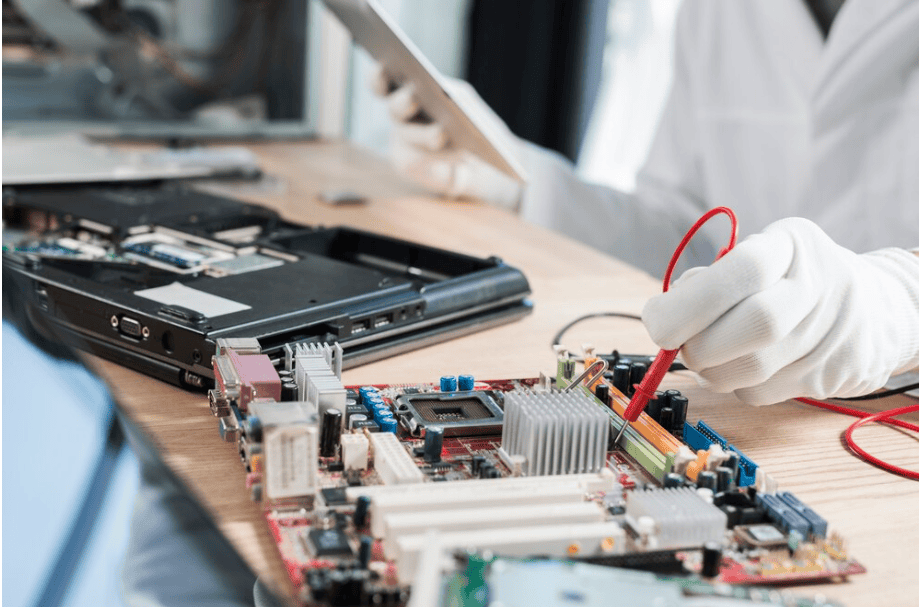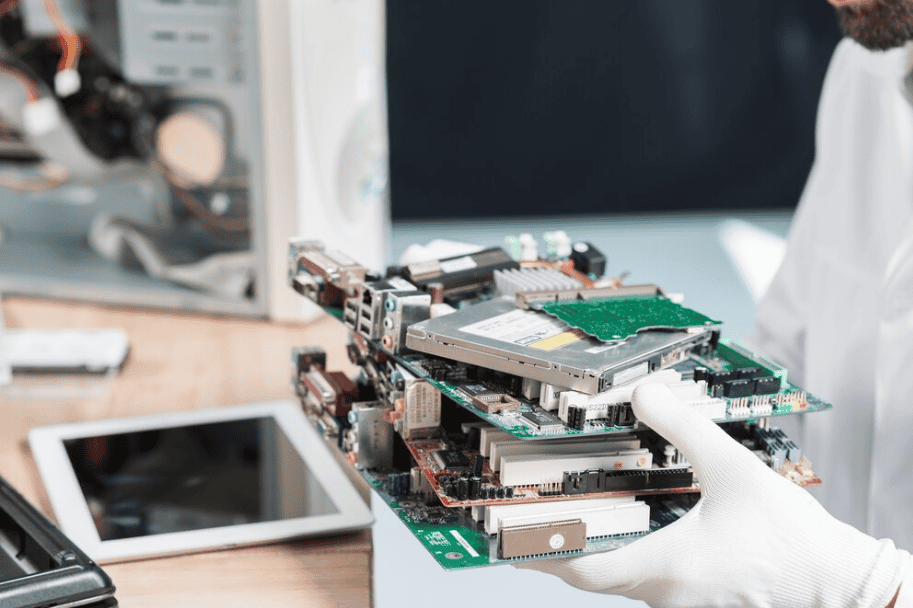In an era defined by rapid technological advancements, computers have become indispensable in our daily lives. Whether at work, home, or school, we rely on them for communication, productivity, entertainment, and much more. However, as technology evolves, computers quickly become outdated, prompting individuals and businesses to upgrade to newer models. This creates a pressing need for responsible computer disposal.
Improper disposal of computers not only leads to environmental harm but also poses serious risks to personal and corporate data security. In this guide, we will explore the importance of responsible computer disposal, the environmental and security risks of improper disposal, and how you can safely and sustainably manage your old computer equipment.
The Importance of Responsible Computer Disposal
As the demand for technology grows, so does the problem of electronic waste (e-waste). Computers, along with other electronics, contain hazardous materials like lead, mercury, cadmium, and various chemicals that can pollute the environment when disposed of improperly.
Visit:
Responsible computer disposal involves more than just throwing an old device into the trash. It includes data protection, recycling, and reducing the impact on the environment through sustainable practices.
Let’s break down the key components:
- Environmental Responsibility: Computers contain materials like plastic, glass, and precious metals (gold, silver, copper) that can be recycled. By responsibly disposing of your computer, you contribute to the recovery of valuable materials and reduce the need for new raw materials, lowering the environmental impact.
- Data Security: Computers store vast amounts of sensitive information, from personal photos and documents to business files and financial data. Simply deleting files is not enough to secure your information. Proper disposal includes data wiping or destruction to ensure no one can access your information once the device leaves your hands.
- Legal Compliance: Many countries have strict regulations regarding e-waste disposal. Businesses, in particular, may be required by law to handle electronic waste responsibly to avoid fines or legal consequences. Compliance with these regulations is essential for maintaining a company’s reputation and legal standing.
Environmental Risks of Improper Computer Disposal
Improperly disposing of computers by sending them to landfills or incinerators can have devastating effects on the environment. Computers contain toxic substances that, when exposed to air, water, or soil, can cause significant harm.
Here are some of the eco-friendly risks:
- Release of Toxic Chemicals: When computers are dumped in landfills, harmful chemicals like lead, mercury, and cadmium can seep into the soil and groundwater, contaminating local ecosystems and posing risks to human health.
- Air Pollution: Incinerating electronic waste can release dangerous chemicals into the air. Burning plastics, metals, and circuit boards produces toxic fumes, including dioxins and furans, which contribute to air pollution and respiratory issues for humans and animals.
- Waste of Resources: Computers contain valuable materials like gold, silver, and copper, which can be extracted and reused. Improper disposal wastes these precious resources and increases the demand for new mining and resource extraction, which can lead to further environmental degradation.
- Contribution to the E-Waste Crisis: The global e-waste crisis continues to grow, and without responsible disposal practices, landfills will continue to overflow with hazardous electronic materials. This problem can be mitigated through proper recycling and disposal efforts.

Data Security Risks of Improper Computer Disposal
Apart from environmental concerns, improper computer disposal presents serious risks to data security. Many individuals and businesses fail to realize that simply deleting files or formatting a hard drive does not permanently erase data. Data can still be recovered using specialized software, potentially exposing sensitive information to criminals.
Here are some key data security risks:
- Data Theft: Cybercriminals often target discarded electronics in search of personal or corporate data. If old computers are not properly wiped or destroyed, your financial information, passwords, customer records, or proprietary business data could fall into the wrong hands.
- Identity Theft: Personal information such as social security numbers, bank account details, and personal identification documents stored on old computers can be exploited by identity thieves, leading to significant financial loss and personal distress.
- Corporate Espionage: Businesses that improperly dispose of computers with sensitive data risk exposing trade secrets, intellectual property, and confidential client information to competitors or malicious actors.
- Legal Liability: For businesses, improper disposal of computers containing sensitive data can lead to legal repercussions, including fines and lawsuits for failing to comply with data protection regulations such as the General Data Protection Regulation (GDPR) or the Health Insurance Portability and Accountability Act (HIPAA).
How to Safely Dispose of Computers
Responsible computer disposal involves several steps to ensure both the environment and your data are protected.
Here’s how you can safely dispose of your old computers:
- Data Backup: Before disposing of any computer, ensure that you back up all important files and data to an external hard drive, cloud storage, or another secure location. This allows you to transfer your data to a new device without losing anything important.
- Data Wiping: Once you’ve backed up your data, it’s essential to securely erase all personal and sensitive information from your old computer. Instead, use specialized data-wiping software that overwrites the hard drive multiple times to ensure the data cannot be recovered. Alternatively, physical destruction of the hard drive is another secure option, especially for businesses handling sensitive data.
- Recycling and E-Waste Facilities: Take your computer to a certified e-waste recycling facility. These centers are equipped to safely dismantle computers and recover valuable materials, while properly disposing of toxic components. Many manufacturers and retailers offer take-back programs where they accept old electronics for recycling.
- Donation or Reuse: If your computer is still functional but you no longer need it, consider donating it to a local charity, school, or non-profit organization. This not only extends the life of the computer but also benefits those in need. Be sure to wipe all personal data from the device before donating it.
- Certified Disposal Services: For businesses, partnering with certified e-waste disposal services ensures that your computers are disposed of in an environmentally responsible manner and that your data is securely destroyed. These companies provide documentation of data destruction and compliance with environmental regulations, giving you peace of mind.
Call now:
Benefits of Responsible Computer Disposal
Adopting responsible computer disposal practices provides a range of benefits for individuals, businesses, and the environment:
- Environmental Protection: Recycling computers reduces the demand for raw materials, conserves natural resources, and prevents harmful chemicals from entering the environment.
- Enhanced Data Security: Proper data wiping or destruction ensures that your personal and corporate information is protected from theft or misuse.
- Compliance with Laws: Businesses that follow e-waste regulations avoid legal issues and demonstrate their commitment to corporate responsibility.
- Supporting the Circular Economy: Recycling and reusing electronics supports the circular economy by keeping materials in use for as long as possible, reducing waste, and promoting sustainability.
- Corporate Social Responsibility: For businesses, responsible disposal demonstrates a commitment to sustainability and data protection, enhancing the company’s reputation and fostering trust among clients and stakeholders.
In Conclusion
In our digital age, responsible computer disposal is more important than ever. Whether you are upgrading to a new device or clearing out old office equipment, taking the time to properly dispose of your computers ensures the protection of both your data and the environment. By following sustainable practices such as data wiping, recycling, and partnering with certified e-waste facilities, you can help mitigate the growing e-waste crisis while safeguarding sensitive information. In doing so, you contribute to a cleaner, safer planet and uphold your responsibility to protect your personal and corporate data.

